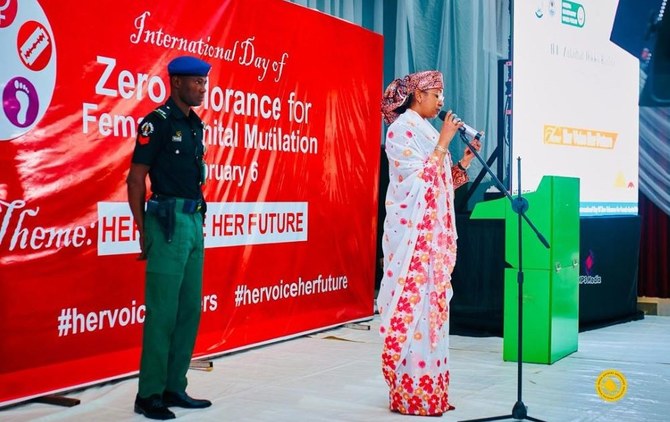
MPs in the Gambia voted on Monday to retain a law outlawing female genital mutilation (FGM), sparking joy and relief among campaigners.
Thirty-four out of 53 lawmakers voted to maintain the ban, which was introduced in 2015, aid workers told the Guardian. The remainder voted to repeal it.
Jaha Dukureh, an FGM survivor and founder of Safe Hands for Girls, said: “Today we stood on the right side of history one more time. We have shown that even if they burn down this country, we will rebuild to protect our women and girls. Today, we won for Gambia.”
According to the UN, the country has the ninth-highest rate of FGM in the world. Almost three-quarters of Gambian women between 15 and 49 have undergone FGM, which involves the partial or total removal of the external female genitalia. Nearly two-thirds of them were cut before the age of five.
The bill was tabled in March by Almameh Gibba, who said he did so to “uphold religious loyalty and safeguard cultural norms and values” in the Muslim-majority state. It was initially approved by a majority of MPs, which forced human rights campaigners to intensify lobbying against the move.
The law’s repeal was backed by Muslim clerics, who hold much sway in the Gambia, a conservative country of 2.7 million people.
One imam, Abdoulie Fatty, helped pay the fines of three women in the northern village of Bakadagi who were found guilty of mutilating eight infant girls last year in the first major conviction under the law. Anyone convicted of carrying out FGM faces three years in prison or a fine of 50,000 dalasi (£570) or both.
The vote was taken following the bill’s second reading after being referred to a parliamentary committee for consultation. A third and final reading had been tabled for next week.
Fabakary Tombong Jatta, the speaker of parliament, said: “[We] cannot be engaged in such a futile exercise as to allow the bill to proceed to a third reading. The bill is rejected and the legislative process exhausted.”
Judy Gitau, coordinator for Equality Now’s Africa office, applauded Monday’s vote for setting a precedent. She said: “Repealing the FGM law was going to set a new low in the pushback against women’s rights.”
While welcoming the move to uphold the law, human rights campaigners warned that more needed to be done to improve the lives of women and girls in the west African country.
Binta Ceesay, women’s rights manager at ActionAid Gambia, said: “Since FGM was banned nearly a decade ago, we have made encouraging strides in ending the practice, but it has not been enough.
“After voting to uphold the ban, we encourage politicians to redouble their efforts in ending this form of violence against women and girls for ever.”
Dukureh said she remained alert to any further challenges to the anti-FGM law.
“We don’t know if it will come up again, but the majority of Gambians still believe in FGM and many believe it is a religious requirement,” Dukureh said. “If it comes up again, we will be here to fight.”












